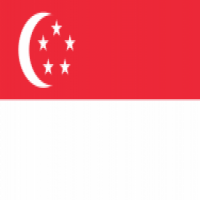Summary:
A Singapore institute of higher learning has developed an effective and stable photoactive antimicrobial agent based from plants. The antimicrobial agent has broad-spectrum activity with a multi-targeted killing mechanism against virus, bacteria, fungus and parasites while limiting the development of antimicrobial resistance.
The technology provider is interested in licensing, research cooperation or commercial agreements with technical assistance with SMEs and MNEs of all sizes.
Description:
Antimicrobial resistance due to the overuse of conventional antimicrobial agents in surface coatings and consumer products is a global concern for the treatment of infectious diseases in recent years.
To address this concern, the US Food and Drug Administration (FDA) has banned the use of a number of conventional antimicrobial agents in consumer and healthcare products including hand soaps and hand sanitisers, thus, giving rise to the importance of alternative antimicrobial agents in antiseptic products.
Photoactive antimicrobial agents are effective alternatives which produce highly reactive oxygen species (ROS) when activated by light. These reactive oxygen species display broad-spectrum biocidal activity that destroy microbes by a multi-targeted killing mechanism, which may limit the development of antimicrobial tolerance or resistance.
The photoactive antimicrobial agent used is obtained from a plant which is cheap and easily available. The agent has been demonstrated in scientific literature as a natural antimicrobial as well as a photosensitiser that has broad-spectrum activity against virus, bacteria, fungus and parasites.
Furthermore, the plant-based antimicrobial agent has been developed in a stabilised form to protect it from environmental degradation. The enhanced environmental stability of this natural photoactive antimicrobial agent makes it suitable to be incorporated in various materials for self-sterilising product applications and provides a “greener solution” to limit the spread of pathogens and transmission of infections by indirect contact.
The stabilisation of the antimicrobial agent is achieved through a single-step chemical reaction. Elemental and spectroscopic analyses of the stabilised product have shown that it is more stable in the environment than its natural precursor. The photosensitisation and antimicrobial properties of the natural compound are retained after the stabilisation treatment. Preliminary studies demonstrate antimicrobial activity by visible light activation.
This stabilised form of the natural photoactive antimicrobial agent can be incorporated into coating formulations to develop antimicrobial coatings for diverse surfaces including plastics, leather, wood, concrete and metal.
In addition, being developed from the natural source of plant origin, this agent may have potential applications in fabric dye, personal care products and packaging materials.
Several methods are being developed to incorporate this antimicrobial agent in various polymers for different applications such as self-sterilising surface coating.
The technology provider is interested in licensing, research cooperation or commercial agreements with technical assistance with SMEs and MNEs of all sizes.
Type (e.g. company, R&D institution…), field of industry and Role of Partner Sought:
The Singapore institute of higher learning team is open to collaborate with industry partners (such as specialty chemical manufacturers and coating developers/manufacturers) for licensing, research cooperation or commercial agreements with technical assistance with the aim to help develop and validate the antimicrobial formulation for various potential applications.
The institute seeks the following types of partnerships with MNEs or SMEs of all sizes:
i) Licensing agreement - The partner could license the technology and develop it further for commercialisation.
ii) Research cooperation - Both companies will collaborate to undertake R&D for new product and service development.
iii) Commercial agreement with technical assistance - The institute will provide support in the transfer of the technology with the provision of additional support services.
Stage of Development:
Project already started
IPR Status:
Secret Know-how
External code:
TOSG20210322001








